The Living World
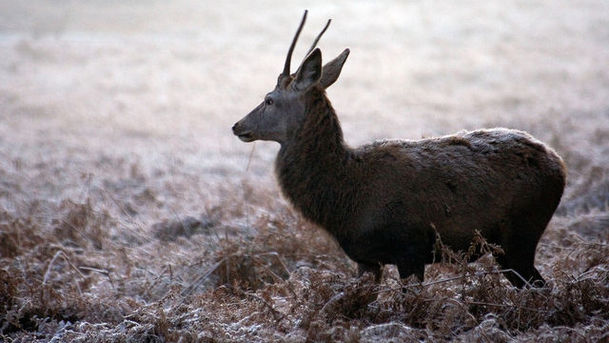
Natural history programme which aims to broadcast the best, most intimate encounters with British wildlife
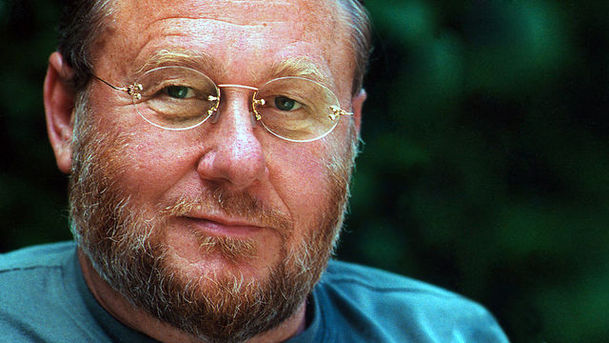
The Living World - 06/06/2010
In spring, the air of the Cumbrian coast is filled with the ear-splitting calls of Natterjack Toads. William Shaw of the ARC Trust reveals their precarious lifestyle.
Details
The Living World - 11/03/2007
Lionel Kelleway visits Brownsea Island off the Dorset coast. Along with its rich history, Brownsea Island hosts a treasure trove of wildlife including herons and red squirrels.
Details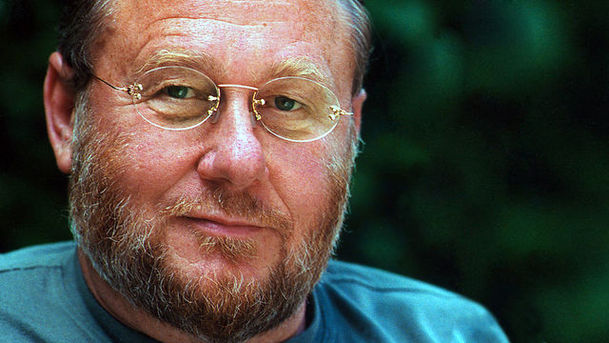
The Living World - 13/06/2010
Accompanied by the woodland chorus, John Walters and Lionel Kelleway immerse themselves in the sweet songs and displays of the Wood Warbler, Redstart and Pied Flycatcher.
Details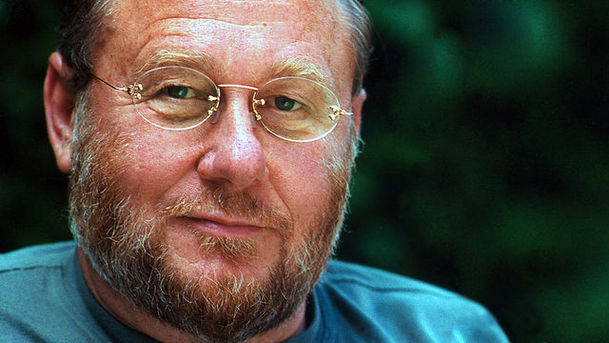
The Living World - 28/11/2010
Lionel Kelleway travels to Herefordshire to marvel at the Old Masters of the British countryside - ancient trees including the oldest oak in Britain.
Details
The Living World - Adders
Naturalist Lionel Kelleway meets veteran adder watcher Sylvia Sheldon on her local patch in Worcestershire, learning about some interesting facets of the snakes' biology.
Details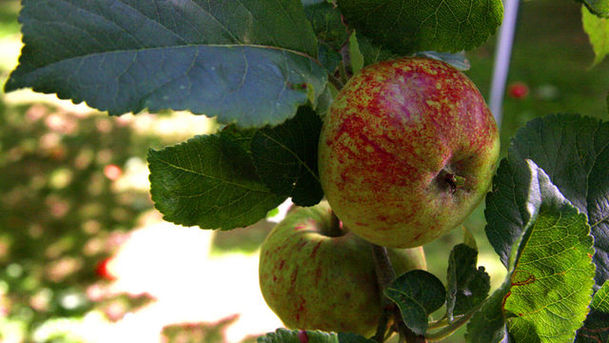
The Living World - Ancient Orchards
Lionel Kelleway is guided by two National Trust experts around a 100-year-old orchard in search of creatures that can only be found among the old fruit trees.
Details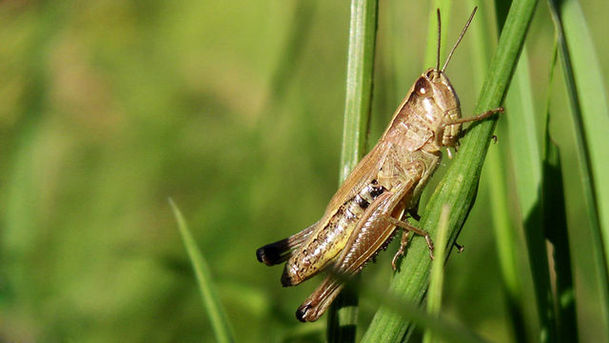
The Living World - Autumn Crickets
The classic sound of the summer makes an untimely focus for Lionel Kelleway as he heads to Dartmoor to get close to the rhythmical autumnal chirping of grasshoppers and crickets.
Details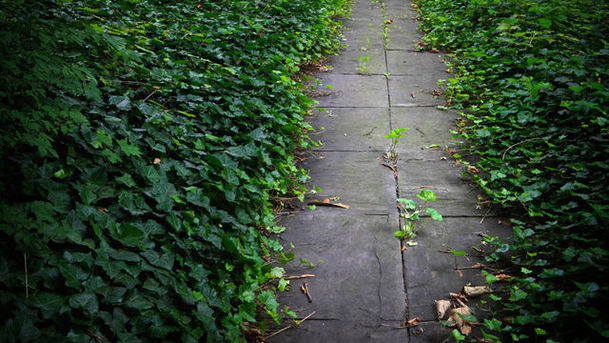
The Living World - Autumn Ivy
Lionel Kelleway explores the important benefits of ivy: in the autumn its flowers provide a late source of nectar for insects, and its evergreen leaves are a haven for wildlife.
Details
The Living World - Badger Behaviour
Lionel Kelleway joins Chris Newman of Oxford University in an experiment to understand how badgers organise their families' living space.
Details
The Living World - Bat Highway
Bat Highway: Lionel Kelleway observes a colony of greater horseshoe bats in Devon.
Details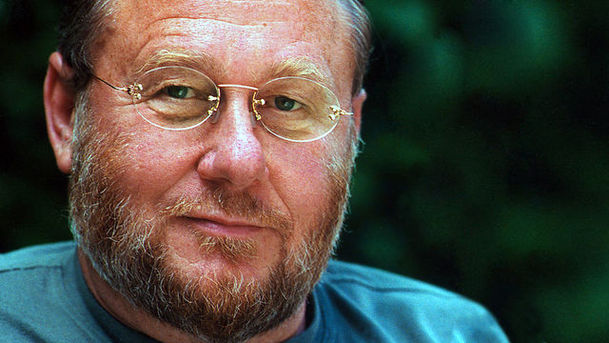
The Living World - Beavering
Beavers were hunted out in Britain 400 years ago, so what is a family of beavers doing in a Scottish Loch? Lionel Kelleway finds out, in the company of Sir John Lister-Kaye.
Details
The Living World - Catch The Pigeon
Lionel Kelleway meets Chris Armstrong, who is researching the mysteries of pigeon navigation. They take the pigeons to a release site and track their progress home.
Details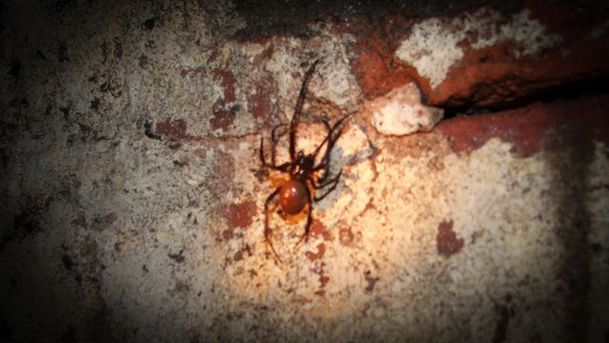
The Living World - Cave Spiders
The cellars of Witley Court in Worcestershire are home to some of our largest British spiders, as Lionel Kelleway discovers when he goes in search of damp-loving cave spiders.
Details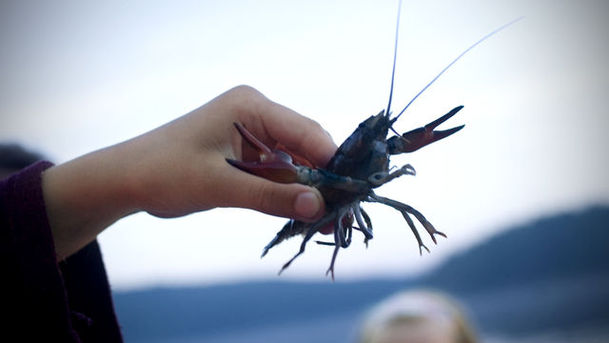
The Living World - Crayfish
Lionel Kelleway travels to Somerset to investigate the plight of our largest freshwater crustacean and to see a project to try and save the crayfish in the wild.
Details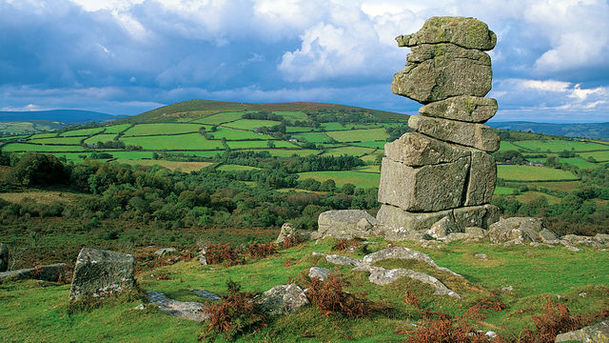
The Living World - Cuckoos
Lionel Kelleway heads to Dartmoor to get close to a juvenile cuckoo and its unwitting foster parents.
Details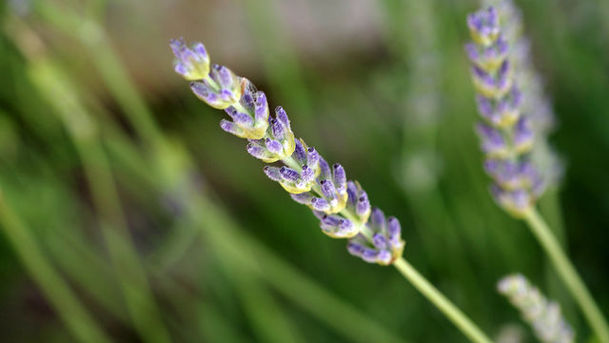
The Living World - Culm Grassland
Lionel Kelleway discovers the Culm Grassland water meadow in Devon, a rare habitat believed to be unique in Europe.
Details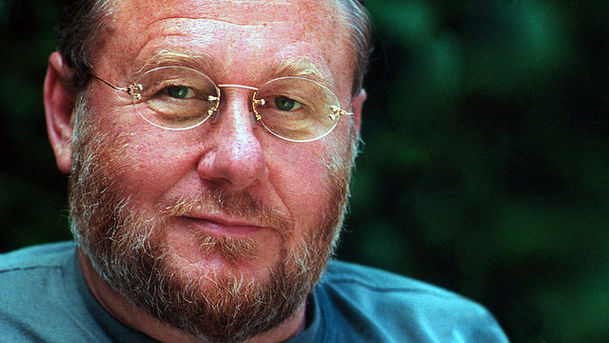
The Living World - Dartford Warbler
Lionel Kelleway visits the Arne RSPB reserve in Dorset in an attempt to see the rare Dartford warbler for himself.
Details
The Living World - Dragonflies
Dragonflies: Ruary McKenzie Dodds takes Lionel Kelleway to Thursley common in Surrey to explore the lives of these strange creatures.
Details
The Living World - Ferns
Ferns: Without seeds or flowers, ferns have managed to seduce naturalists and gardeners with their delicate beauty, shapes and colours for centuries. Lionel Kelleway investigates.
Details
The Living World - Fieldfares in a Winter Orchard
Fieldfares in a Winter Orchard: Lionel Kelleway joins bird ringer Stephen Dodd to survey the numbers of fieldfares visiting an orchard in Worcestershire.
Details
The Living World - Gothic Bats
Gothic Bats: Lionel Kelleway meets Roger Ransome at Woodchester Mansion in Gloucestershire, home to six of Britain's native species of bats.
Details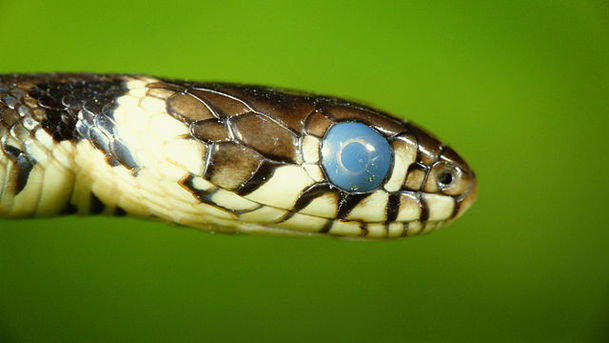
The Living World - Grass Snakes
Lionel Kelleway tries to get close to the grass snake and find out a little more about its private life. Grass snakes grow to five feet long and are Britain's largest native snake.
Details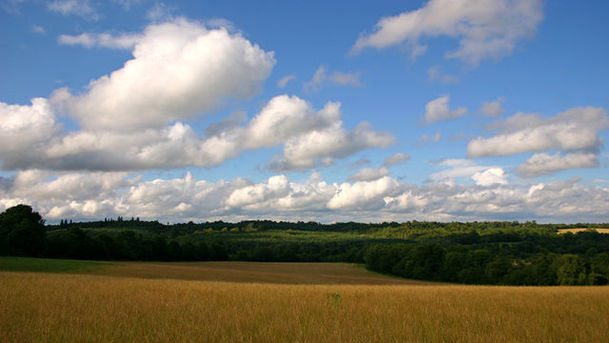
The Living World - Grassland Meadows
Britain's geology makes for diverse grassland meadows and with it wild flowers, as Lionel Kelleway discovers.
Details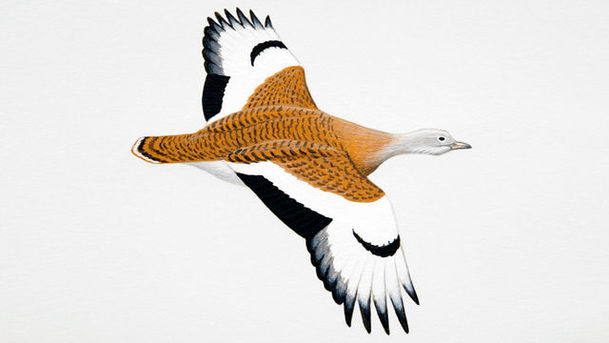
The Living World - Great Bustards
Lionel Kelleway finds out about a programme to re-introduce the Great Bustard to the British countryside from a captive-born stock of animals.
Details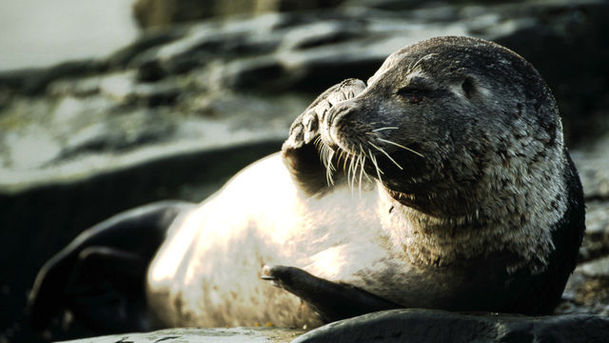
The Living World - Harbour Seals
Lionel Kelleway is on Dartmoor, finding out how Mark Lawrence is able to locate hundreds of birds' nests each Summer amongst the bracken and gorse.
Details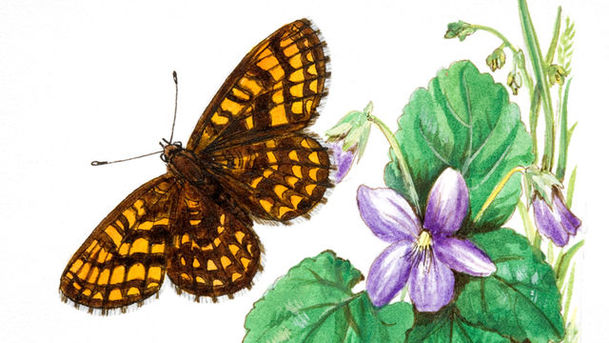
The Living World - Heath Fritillary
Lionel Kelleway heads to a valley near Dunkery Beacon in the north of Exmoor National Park in search of one of Britain's rarest butterflies.
Details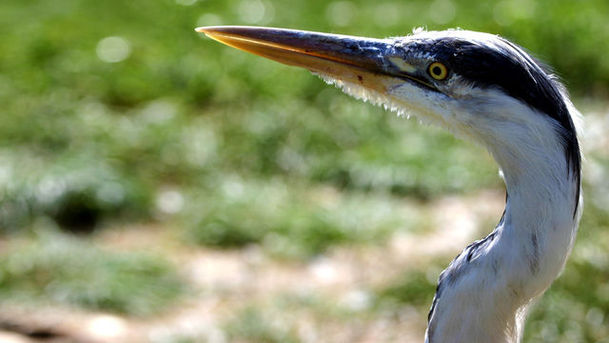
The Living World - Herons
Lionel Kelleway travels to the RSPB's Ham Wall nature reserve in Somerset in an attempt to see all five species of heron which currently breed in the UK.
Details
The Living World - In Search of Dippers
In Search of Dippers: Lionel Kelleway joins Steve Ormerod from Cardiff University on a Welsh riverbank to observe the dipper, the world's only truly aquatic passerine bird.
Details
The Living World - In Search of Sea Lampreys
In search of Sea Lampreys: Lionel Kelleway visits the River Ure in Yorkshire and with the help of naturalist Brian Moreland, has a once in a lifetime encounter with the Sea Lamprey.
Details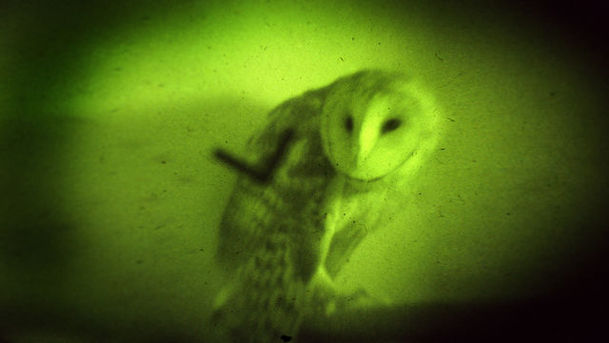
The Living World - Isle of Man: Beeflies
On the northern Manx shore is a large expanse of dune dominated by lichen heath. This special habitat is the scene for one of Lionel Kelleway's most unusual quests.
Details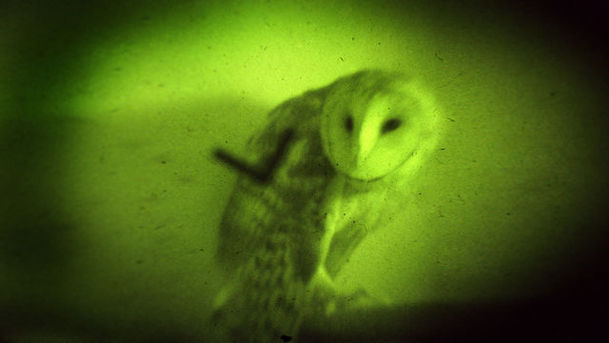
The Living World - Isle of Man: Hen Harrier
The island is the UK's hotspot for the bird of prey with sulphur yellow legs. Lionel Kelleway enjoys the closest of encounters near a nest with three thriving chicks.
Details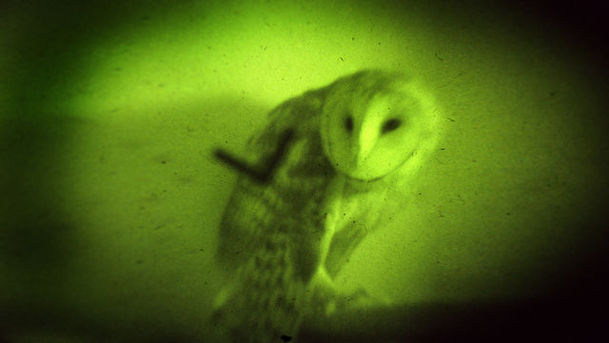
The Living World - Isle of Man: The Natural History of the TT Race
Lionel Kelleway joins two TT race fanatics and naturalists on a trip around the famous 37-mile course. They observe the local wildlife, including cave spiders, lampreys and orchids.
Details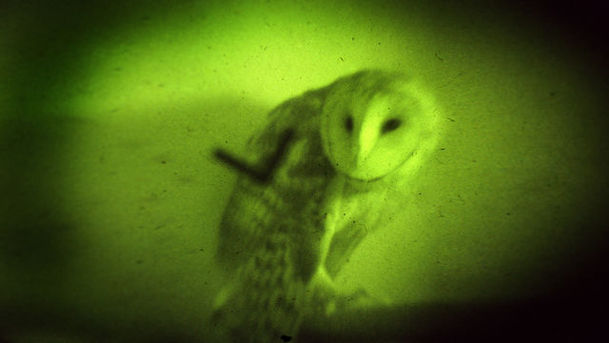
The Living World - Isle of Man: The Rocky Shore
Lionel Kelleway enjoys a highly productive day along a coastline full of variety. He finds lobsters and fiddler crabs and learns about the pressures on the island's shores.
Details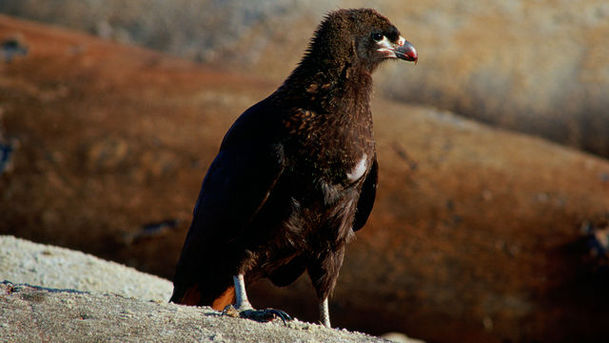
The Living World - Johnny Rook - A Lovable Rogue
Lionel Kelleway travels to the Falkland Islands in pursuit of Johnny Rook, the cara cara, which has returned from near extinction and plays a unique role in the islands' ecology.
Details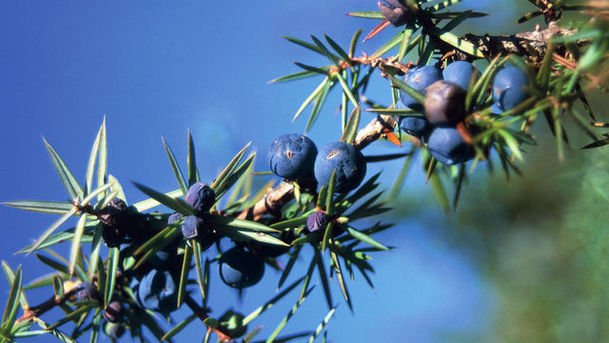
The Living World - Junipers
Enjoy a gin and tonic while you can - rabbits are threatening the long term survival of gin-flavouring juniper at a key site near Salisbury. Lionel Kellaway investigates.
Details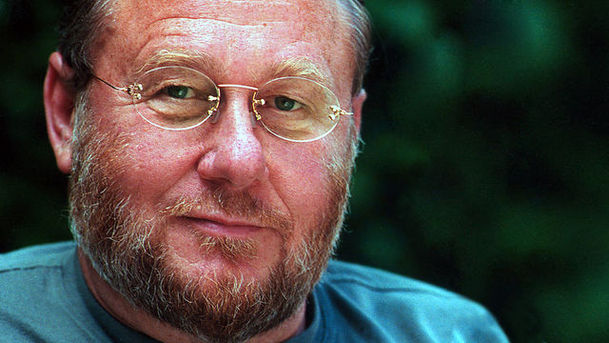
The Living World - Marsh Harriers
Lionel Kelleway gets very close to the marsh harrier, an icon of the East Anglia marshland.
Details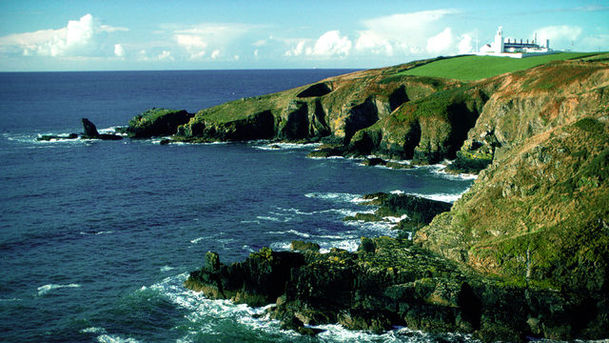
The Living World - Migrating Moths
On the most southerly point in mainland Britain Lionel Kelleway visits moth expert Mark Tunmore at the old lighthouse station, where they spend the evening looking for moths.
Details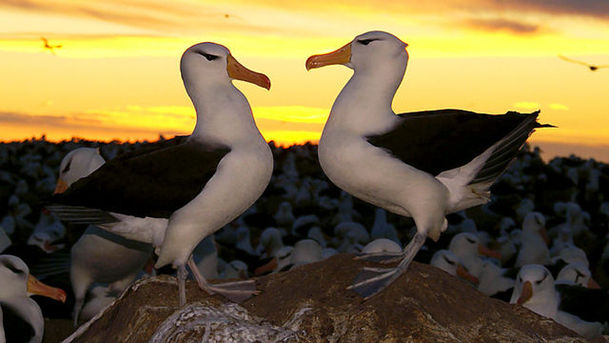
The Living World - Mollymawk Manor
Lionel Kelleway travels to the Falkland Islands in search of the mollymawk, the local name for the black-browed albatross.
Details
The Living World - Mosses
Mosses: Lionel Kelleway explores the luxuriant mosses to be found in a Shropshire woodland with bryologist Mark Lawley.
Details
The Living World - Mud Matters
Mud Matters: Lionel Kelleway explores the Wash, the largest expanse of mudflats in the UK and a mecca for over 300,000 migrating wader birds every year.
Details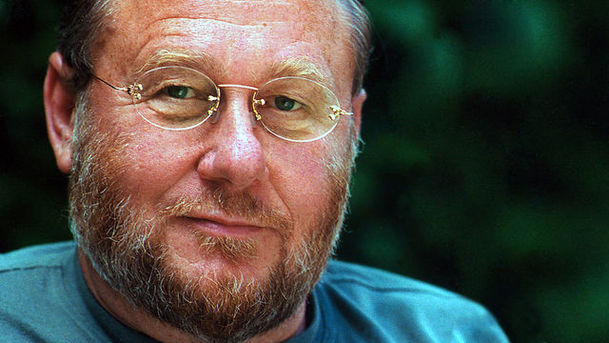
The Living World - Native Hedgerows
On a farm in Devon Lionel Kelleway visits hedgerow ecologist Rob Walton, where they explore the value of hedges for wildlife and search for a dormouse along the way.
Details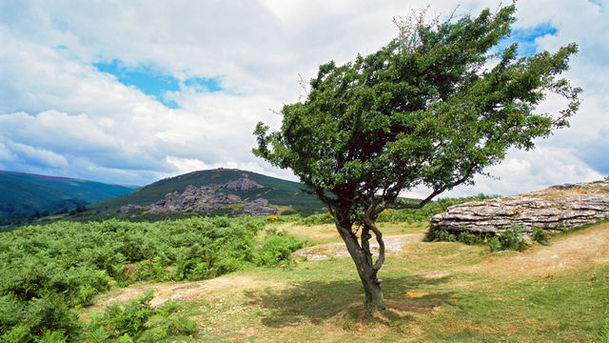
The Living World - Nest Finder of Dartmoor
Lionel Kelleway is on Dartmoor, finding out how Mark Lawrence is able to locate hundreds of birds' nests each summer amongst the bracken and gorse.
Details
The Living World - Netting at Snettisham
Netting at Snettisham: Lionel Kelleway presents a second programme from the Wash. He joins RSPB conservation officer Sarah Dawkins to track the waders' migratory patterns.
Details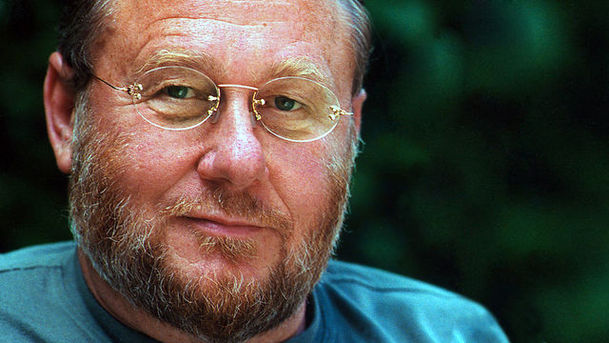
The Living World - Peat Bog Gremlins
Among the bracken of Scotland's blanket peat bogs, insects had better watch out. Carnivorous plants abound, and use a range of ingenious strategies to ensure their sticky end.
Details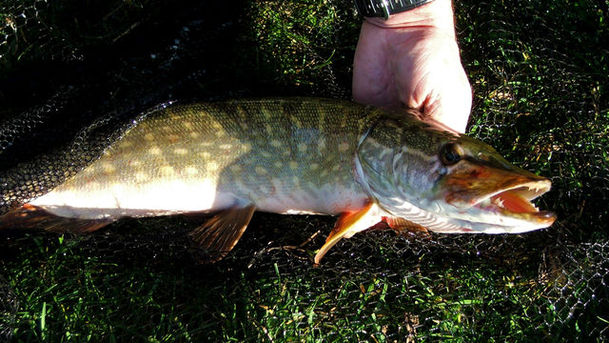
The Living World - Pike
Mike Ladle joins Lionel Kelleway on the banks of the River Frome in Dorset to catch the river's most successful predator, the pike.
Details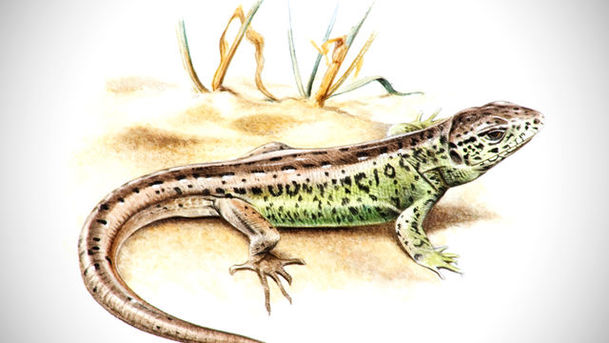
The Living World - Rare Reptiles
Lionel Kellaway heads to Town Common near Bournemouth, home to all six of Britain's reptile species. With Roland Griffin of the ARC Trust as his guide, how many will he find?
Details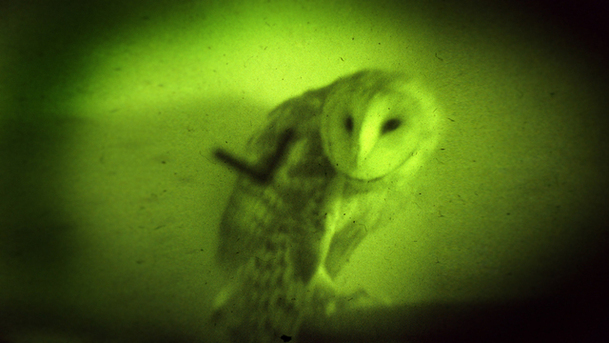
The Living World - Reed Warblers
Lionel Kelleway visits Rostherne Mere in Cheshire in search of reed warblers. He joins warbler expert Malcolm Calvert as he rings the adults and searches for nests in the reed beds.
Details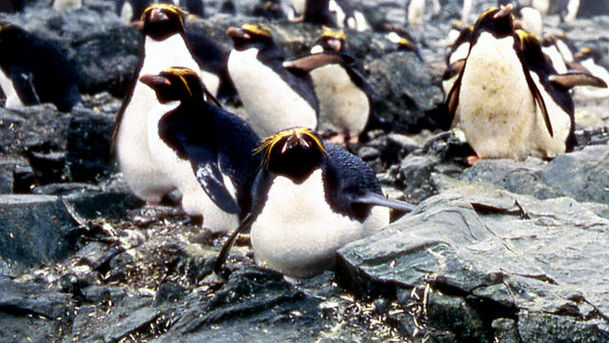
The Living World - Rockhopper Penguin
Lionel Kelleway encounters a colony of 5,000 Rockhopper penguins in the midst of their breeding season in the Falkland Islands.
Details
The Living World - Rooks and a Winter Roost
Rooks and a Winter Roost: Lionel Kelleway watches an extraordinary spectacle as tens of thousands of rooks gather together to roost for the night.
Details
The Living World - Salisbury Plain Honey Bees
Honey bees are part of the natural ecology of Salisbury Plain, an area used for training by the British Army and RAF. Lionel Kelleway meets MOD bee expert Chris Wilks.
Details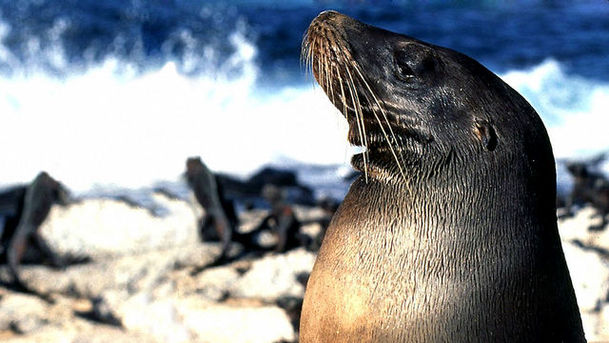
The Living World - Sea Lion Island
Lionel Kelleway travels to the Falkland Islands in search of amorous marine mammals on Sea Lion Island, a temporary home for sea lions and elephant seals.
Details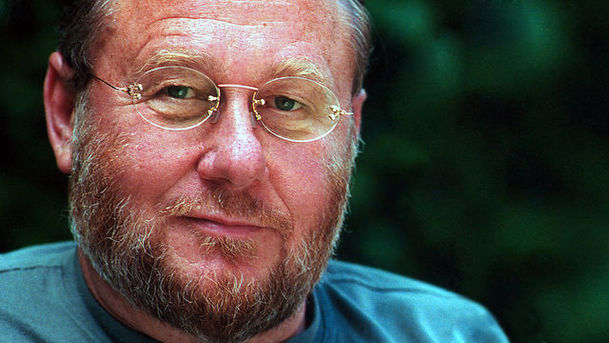
The Living World - Sika Deer
Lionel Kelleway heads to Purbeck in Dorset to experience the sights and unusual sounds of sika at the start of the rutting season.
Details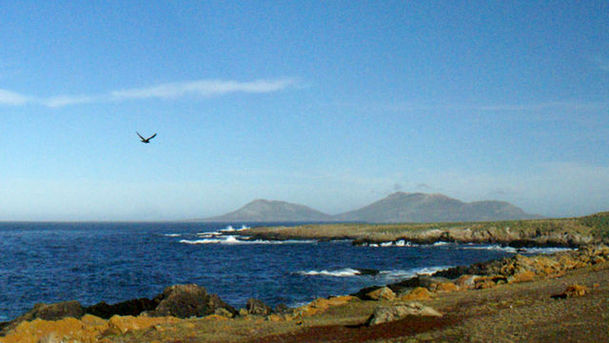
The Living World - Southern Sea Shores
Lionel Kelleway travels to the Falkland Islands to find out how marine life in the Southern Atlantic compares with beachcombing back home.
Details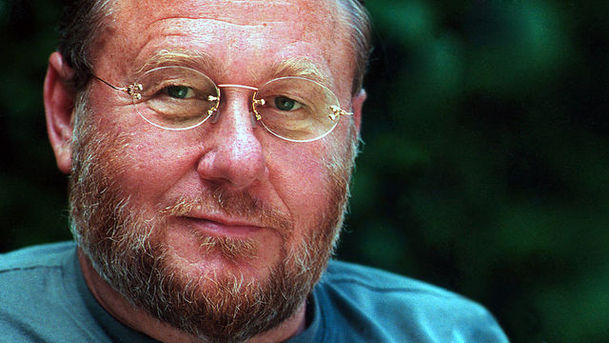
The Living World - Stalking Cranes
Lionel Kelleway joins Norfolk Wildlife Trust and the National Trust to witness the night roost of the crane, Britain's largest wading bird.
Details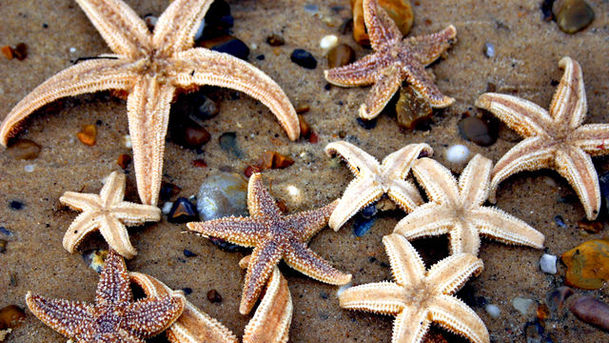
The Living World - Starfish
Marine biologist Peter Heyward leads Lionel Kelleway through the rock pools at low tide on the Gower Peninsular in search of starfish.
Details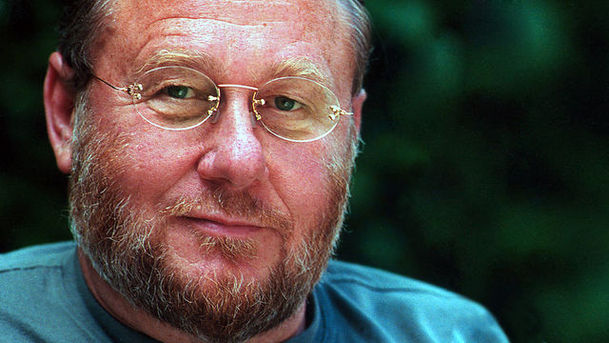
The Living World - The Deer Park
Lionel Kelleway learns about the history and wildlife of Bishop Auckland Deer Park from naturalist Phil Gates, and discovers a metropolis of meadow ant hills.
Details
The Living World - The Dormouse and the Vet
The Dormouse and the Vet: Lionel Kelleway joins Sue Tatman from Cheshire Wildlife Trust on a day out looking for dormice. The reintroduced population is being monitored.
Details
The Living World - The Duck Pond
The Duck Pond: Lionel Kelleway joins Ciaran Nelson at the RSPB Reserve at Snettisham in Norfolk. Sat in a hide overlooking a lagoon at the reserve, they compare notes on ducks.
Details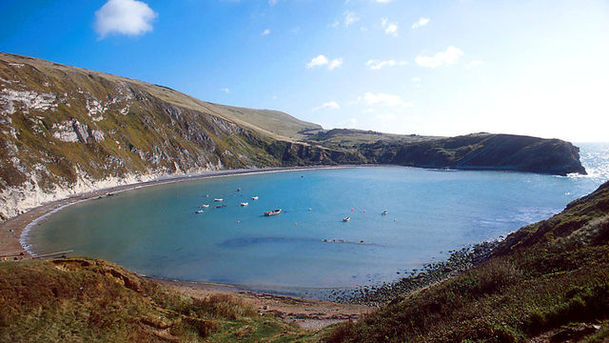
The Living World - The Late Arrivals
Lionel Kelleway travels to Lulworth Cove in Dorset, where he witnesses the small bands of Red Admiral butterflies that migrate from mainland Europe.
Details
The Living World - The Miniature World of Slitt Wood
The Miniature World of Slitt Wood: Lionel Kelleway joins botanist Phil Gates in his open-air laboratory in Weardale and discovers a fascinating miniature forest.
Details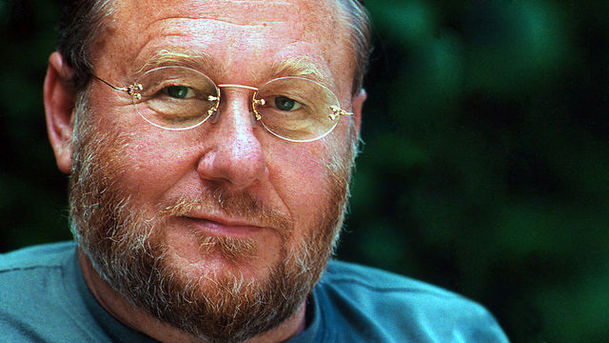
The Living World - The Potter Wasp
The British Isles are home to 6500 species of wasp and bees. Lionel Kelleway travels to Devon in the hope of seeing a potter wasp bringing paralysed caterpillars to the pot.
Details
The Living World - The Underwater Architects
The Underwater Architects: Lionel Kelleway joins expert Ian Wallace at Lake Windermere to observe the caddis fly. At the larval stage, these creatures build amazing structures.
Details
The Living World - The Vernal Lantern Fish
The Vernal Lantern Fish: Lionel Kelleway goes in search of this beautiful luminescent creature which is beginning to appear around our coast due to rising sea temperatures.
Details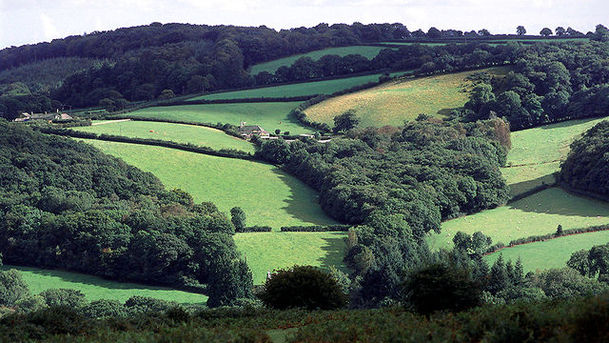
The Living World - The World's Largest Slug
Lionel Kelleway visits the Dart Valley in Dartmoor in search of the elusive Ash Black Slug, which can measure as much as 30 centimetres in length.
Details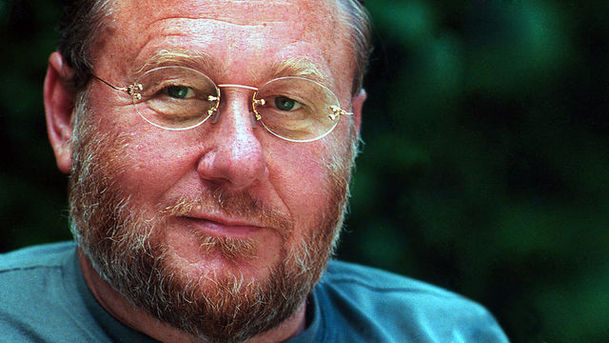
The Living World - Too Good to Tread On
Lionel Kelleway travels to Portland Island in Dorset to see one of Britain's rarest and smallest plants, a bryophyte.
Details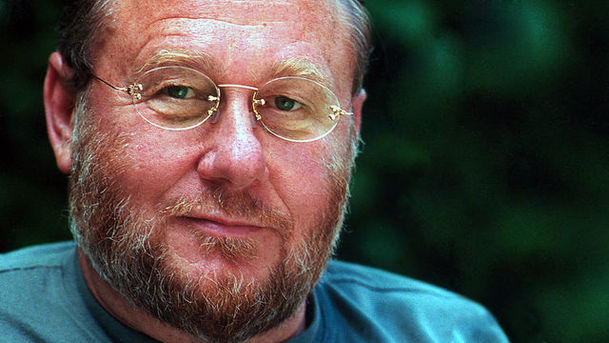
The Living World - Tufty of Thirlmere
As the autumn colours of the Lake District intensify, Lionel Kelleway sets off to find his own autumnal 'tufty' red squirrel in the mixed woodlands of Thirlmere.
Details
The Living World - Water Voles
Water Voles: Lionel Kelleway is joined by Louise Wells of the London Wildlife Trust to observe these traditionally rural creatures which are gradually spreading into our cities.
Details
The Living World - Wild Boar
Wild Boar: Lionel Kelleway visits the Forest of Dean in Gloucestershire on the trail of a shy and evasive animal that was wiped out in Britain but has now been re-established.
Details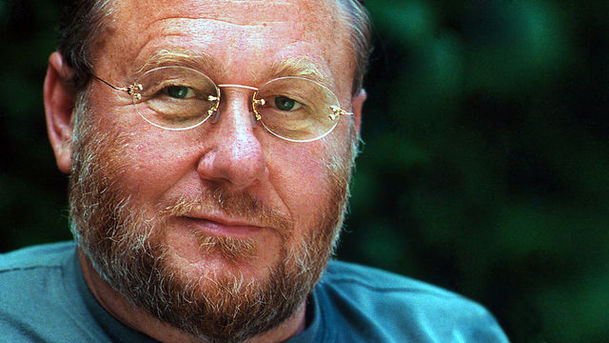
The Living World - Winter Ravens
Lionel Kelleway travels to Shropshire where the raven is recovering from years of persecution by recolonising much of its old breeding areas, and where a large roost now exists.
Details
The Living World - Wintering Warblers
Wintering Warblers: Lionel Kelleway joins Greg Conway of the British Trust for Ornithology to find out how our milder winters are helping species of warbler survive.
Details